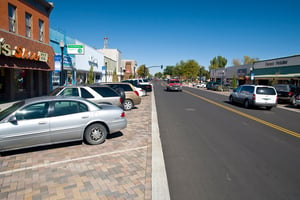Street reconstruction projects are major undertakings for cities large and small.
When we think about street reconstruction improvements, several typical goals come to mind:
- Improve pavement
- Add or reduce lanes for cars
- Make upgrades to water, sewer and drainage infrastructure
- Include multimodal and streetscape enhancements
But there is another opportunity we cannot overlook when designing these projects: the opportunity to improve stormwater quality.
Here are four ways to include sustainable water quality elements on your next street reconstruction project that remove the need for water quality ponds and additional right of way – both often require more land and funds than are available for your typical urban street reconstruction project.
1. Pervious pavers
Especially useful in downtown areas, pervious pavers provide a stable pavement that allows water to pass through and have sediment and other pollutants removed prior to discharge in storm sewers or infiltration into the ground below. They also reduce runoff by the impervious area of the roadway.
When the City of Fort Morgan, Colorado, embarked on a major downtown street reconstruction project, they had one challenge familiar to many downtowns. There was minimal slope on the gutters.
The municipal engineer for Fort Morgan recommended we maintain the flat gutters and use pervious pavers in the angled parking to capture low flows, which are then taken to inlets through underdrain pipes. Water is not standing in these gutters because it is caught in the pervious paver voids.
On a check-in six years after construction was completed, the City has not yet needed to vacuum the paver voids. Maintenance and upkeep had been minimal.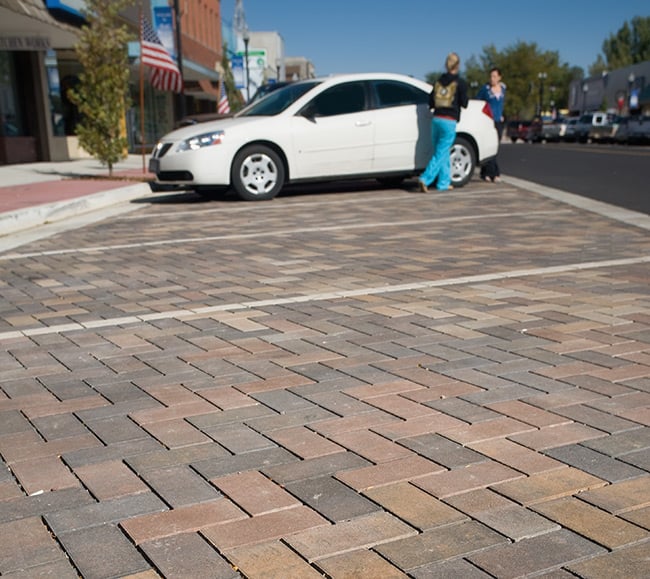
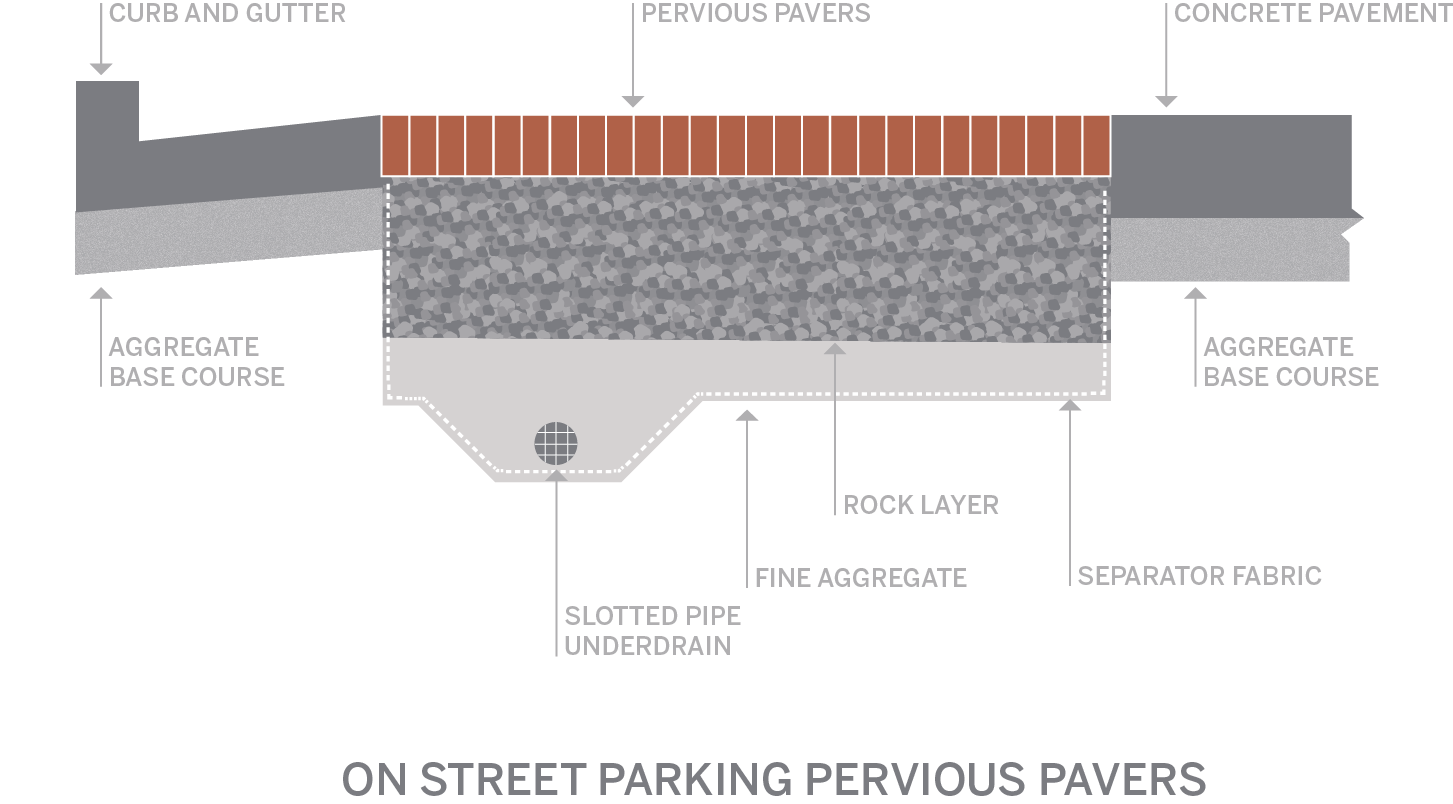
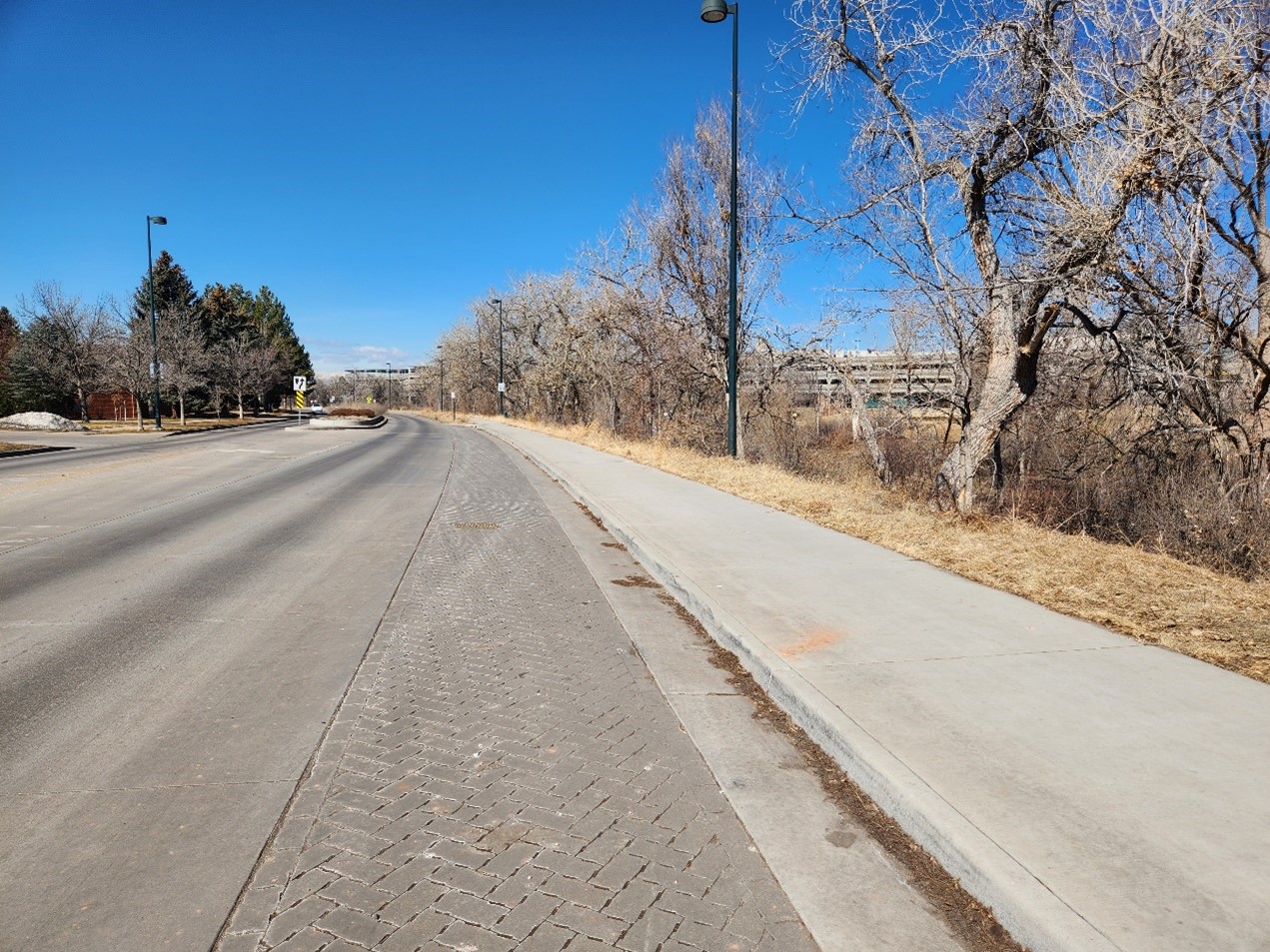
At Cherry Creek South Drive in Denver, it was critical that some form of water quality be provided since the project is adjacent to Cherry Creek. Pervious pavers were included on street parking, providing full water quality capture volume.
2. Bioswales
A green alternative to storm sewers, bioswales are natural stormwater runoff conveyance systems. They can absorb low flows or carry runoff from heavy rains to storm sewer inlets or surface waters. Bioswales improve water quality by infiltrating the first flush of stormwater runoff and filtering the large storm flows they convey.
When replacing a busy intersection with a new roundabout in Centennial, Colorado, we used the additional non-paved area at the roundabout quadrants for new bio-swales with underdrains to improve water quality. Curb cuts allow runoff water to enter the bioswales and infiltrate into an underdrain system.

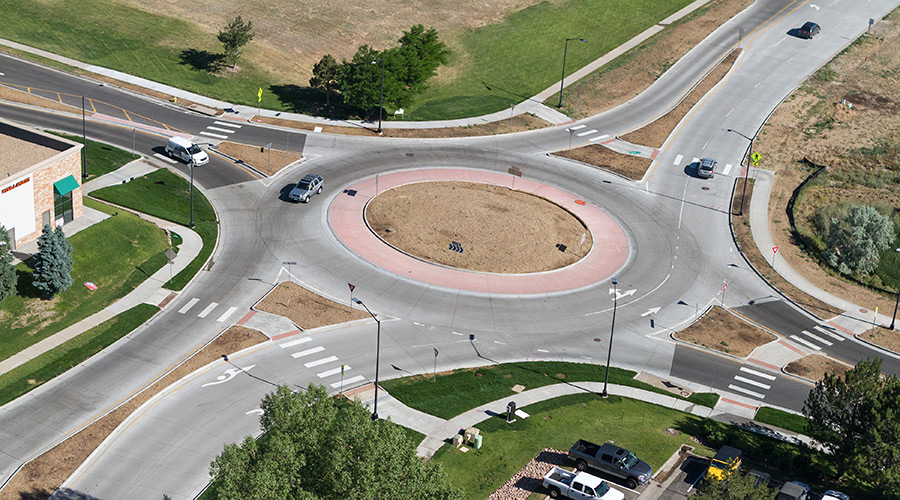
3. Stormwater planters
Another way to improve water quality on your next street reconstruction is to use stormwater planters. Stormwater planters are contained vegetated areas that collect stormwater runoff. They collect and filter water through various layers of vegetation and soils.
Stormwater planters were included in the preliminary design as the recommended stormwater solution on a three-quarter-mile section of Brighton Boulevard – an essential redevelopment area for the City of Denver.
The stormwater planters include an underdrain, which carries stormwater from the downstream side of the planters to the new storm drain infrastructure. Most impressive is that the planters contain 81% of the capture volume along the corridor, even though the system required many breaks due to interruptions created by multiple intersections with streets and driveways.
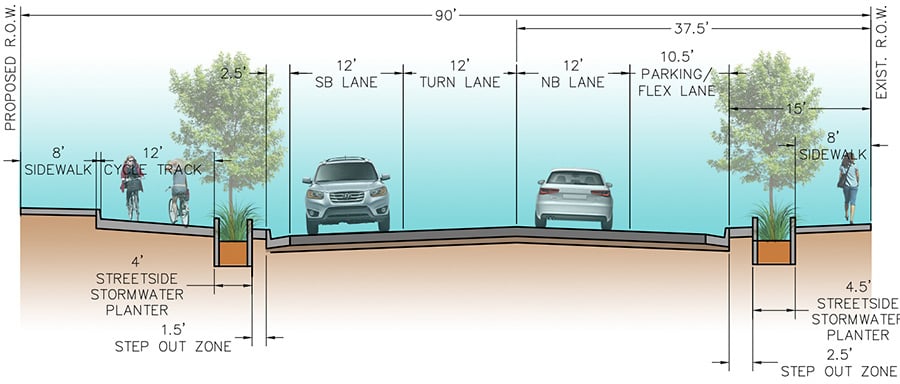
4. Underground Water Quality Treatment
For areas already fully built out or with narrow roadway corridors, underground water quality treatment is an alternative reconstruction method. These solutions function as an underground water quality pond. The structures are produced by a number of supplies and can be constructed from concrete or plastic. They collect runoff and regulate the outflow to allow sediment and pollutants to settle out.
SEH worked with the City of Colorado Springs to install four single-cell underground water quality structures on the Barnes Road reconstruction project. The site had very steep slopes and a narrow right-of-way, and it was determined that underground structures were the best option.
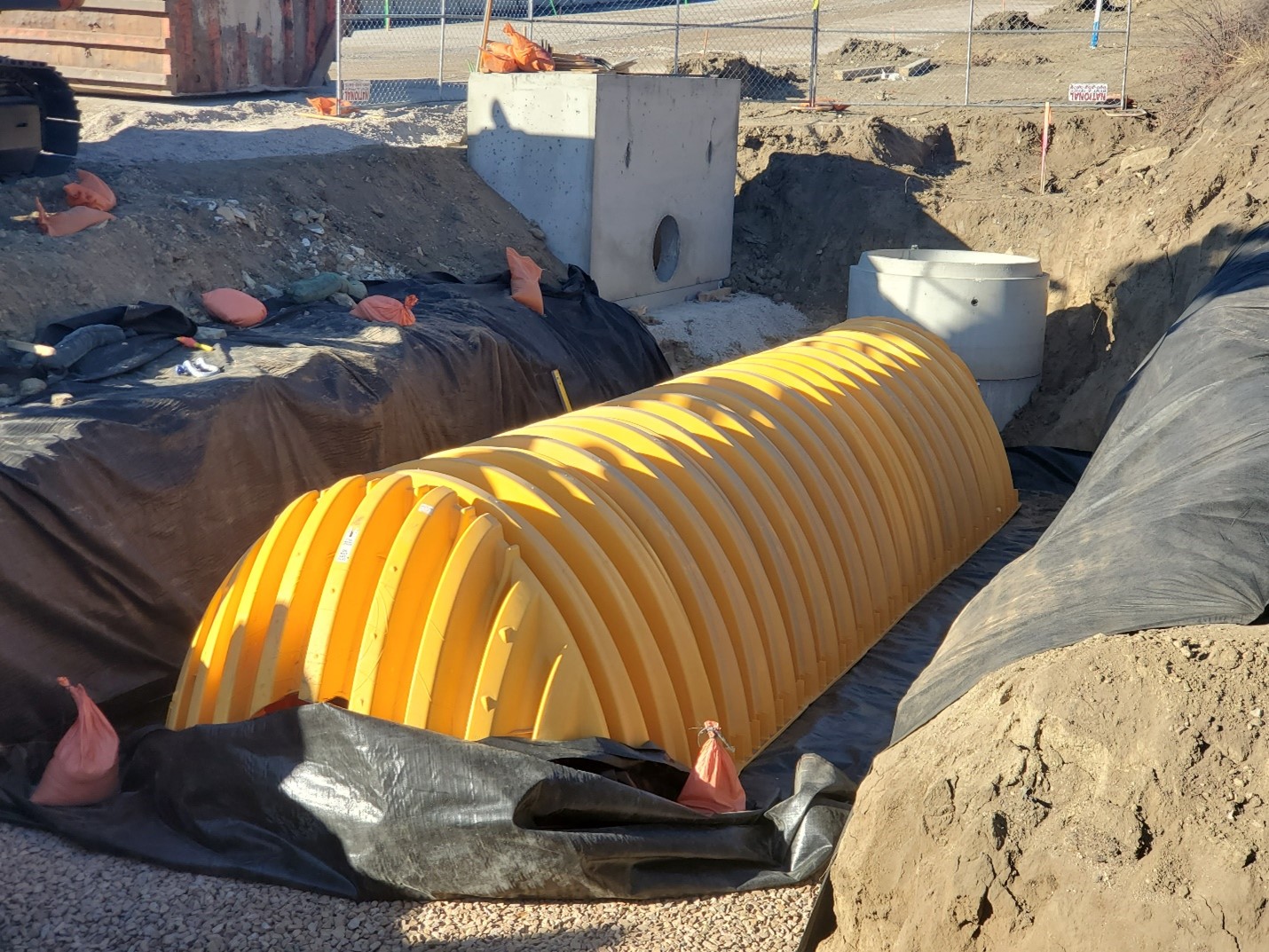
Four underground structures were installed to provide treatment for the full water quality capture volume on this approximately 0.75-mile stretch of reconstruction of Barnes Road.
Bringing it all together
Improving stormwater quality on a street reconstruction project has many challenges, including right-of-way limitations, the cost, (lack of) available property for water quality features outside of street right-of-way, construction costs, and maintenance responsibility.
However, urban street reconstructions offer an excellent opportunity to provide water quality without requiring new land for ponds. Like the three presented above, green features are sustainable ways to improve water quality while providing an amenity for residents that requires minimal maintenance. There are also underground alternatives to improve water quality when there is no greenspace available.
About the Expert

David Hoesly, *PE, CFM, is a senior water resource engineer at SEH. David has extensive experience with stormwater and water quality solutions in a variety of projects and project types, including municipal roadway construction, residential and commercial land development, channel and stream design, and large-scale mining sites.
*Registered Professional Engineer in CO

.png?width=113&name=SEH_Logo_RGB%20(1).png)
